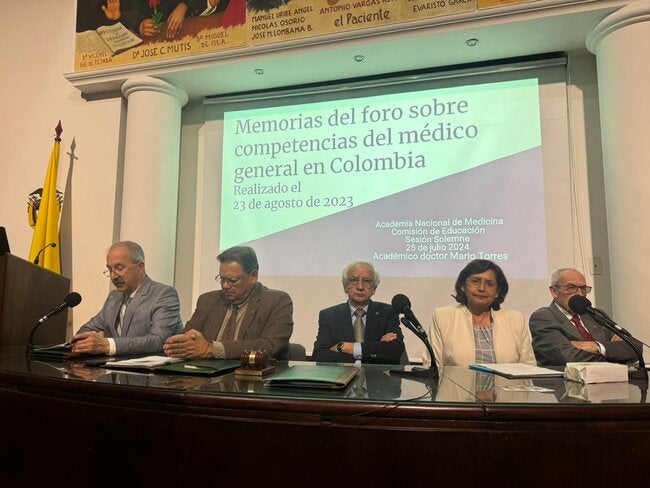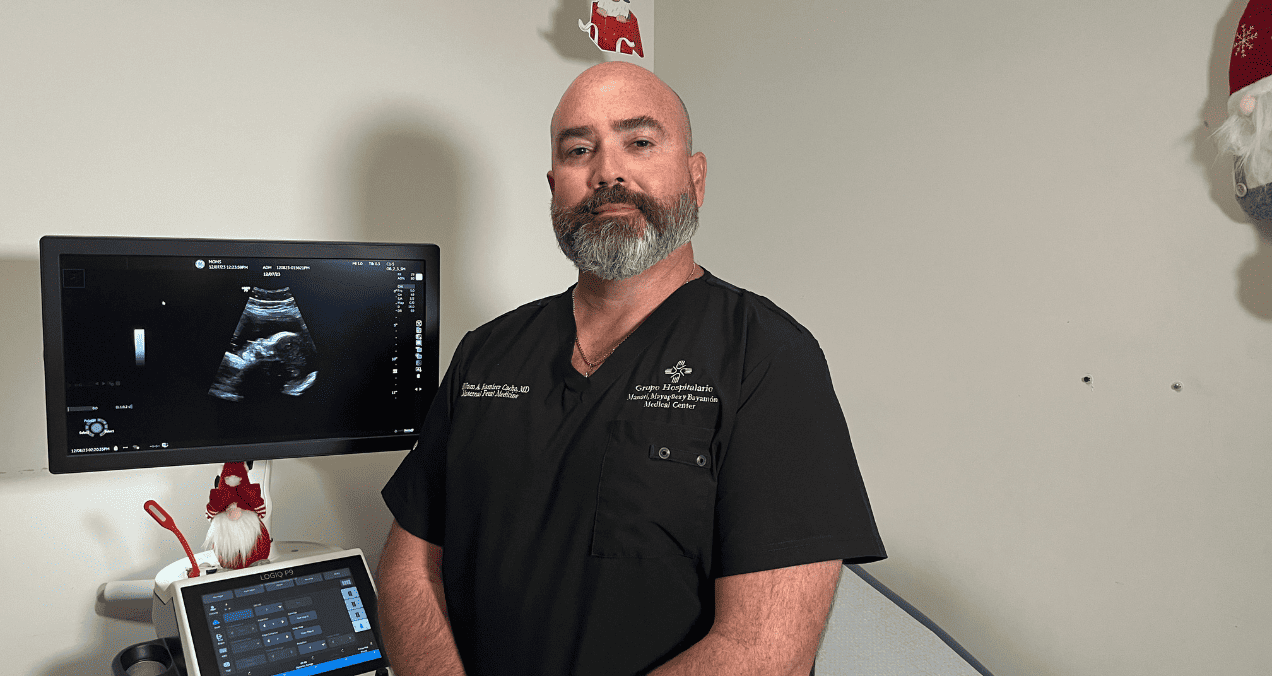The doctor has been battling the disease for just over two years, claiming that he has found a balance between his profession and his personal life.
Dr. William Ramirez, an obstetrician-gynecologist, specializes in maternal-fetal medicine and multiple myeloma survivors. Image: Journal of Medicine and Public Health.
In September 2021, Dr. William RamirezA distinguished obstetrician-gynecologist specializing in maternal-fetal medicine, he received an unexpected diagnosis that would change the course of his life: Multiple myeloma.
“It's a unique moment in one's life, it's a state where your mind becomes confused, from the clinical side as a professional in a subspecialty, and you fall down and at that point, there's a lot of mix of feelings and thoughts and a lot of ideas come in,” Frank said.
The health professional experienced a significant change in his life and perspective when receiving a post-study diagnosis for back pain. During this period, he was thinking about his accomplishments, pending activities, people around him, and how the situation might affect them.
It's time to rethink your life
At this time, his professional practice was reaching its peak, with the services and accomplishments in the hospitals where he worked experiencing significant growth and development. On a personal level, his daughters were entering adulthood, and he was in a new phase of his marital life with his current wife.
He added: “All of these things came together in my thoughts and feelings and sparked a series of reactions within me, saying that what they basically did was reset me and start looking for solutions and alternatives.”
The challenges you had to face
The specialist highlighted the most important challenges he faced as a health professional when he had to adapt to his lifestyle, especially because of the treatment he was going to receive: chemotherapy. Dealing with immune compromises and spinal injuries that could limit his mobility in the future is a major challenge. Adjusting all of these considerations in the short and long term has proven to be a complex task.
“For me, the advantage I had was that working in a hospital group we were all like a big family and I had the support of many colleagues who helped me treat my condition and helped me continue to care for my patients, as I belong to a group where we trained with three other gynecologists, Now there are ten of us, and our patient care has been slightly modified because of my condition.”
As a health professional, you tend to neglect your health
Dr. Ramirez noted that healthcare professionals sometimes tend to neglect their health, an observation that extends not only to cancer patients, but also to many colleagues in various fields. She highlighted the importance of balancing daily life, learning how to manage stress, and seeking professional support, whether through counseling, psychologists, or others who provide help.
“I am still in treatment, in chemotherapy, trying to finish the initial operation, thank God the bone marrow transplant was successful and the maintenance I am doing is for the next 6 to 8 months, knowing that the next studies and biopsies are negative how it has turned out so far. The day is stressful sometimes, when I'm with a lot of patients, when I have to take a trip, it's stressful, but physically, but I feel like I've reached a point of balance,” he said.
Lessons learned
“The most important lesson is that when you're in health care and you see different things, different diagnoses, you try to empathize with patients, and you have the ability to put yourself in that patient's shoes, you can try to understand, but not even,” he concluded. The doctor becomes sick. “We cannot lose focus, we must reconsider what we have done.”




:quality(85)/cloudfront-us-east-1.images.arcpublishing.com/infobae/SXDWOIO7O5FMZOWUATFEXQYWTY.jpg)



